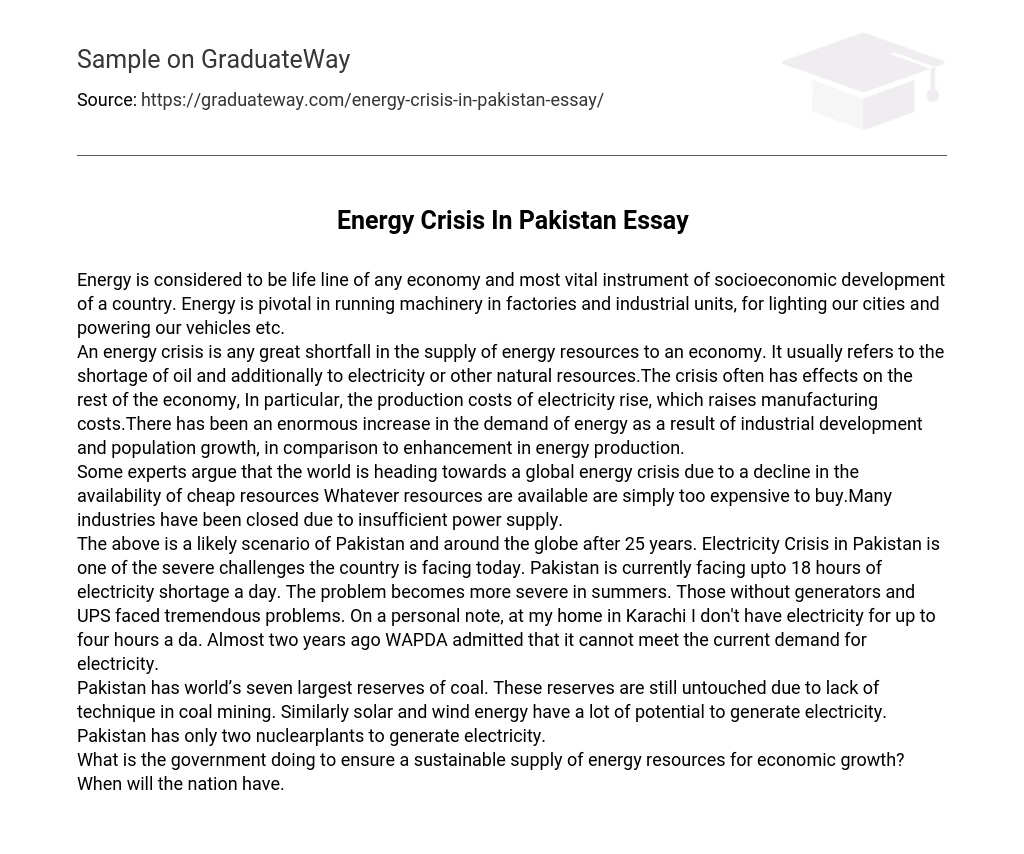Energy is essential for the operation and advancement of economies. It has a vital role in the socioeconomic progress of nations as it fuels machinery, illuminates urban areas, and powers vehicles. When an economy experiences a shortage of energy resources, commonly oil, electricity, or other natural resources, an energy crisis occurs. This deficiency profoundly affects the economy by increasing manufacturing costs due to higher expenses in electricity production. The growth in energy demand resulting from industrialization and population expansion has surpassed improvements in energy production.
Experts anticipate a worldwide energy crisis due to the diminishing availability of affordable resources, resulting in higher costs for obtaining essential energy. Consequently, industries are ceasing operations due to insufficient power supply. This issue is projected to impact Pakistan and other countries globally within the next 25 years. Presently, Pakistan is confronted with a substantial electricity crisis, enduring daily power deficits lasting up to 18 hours.
During the summer months, the issue worsens and creates significant difficulties for individuals who do not have generators or UPS systems. In my residence in Karachi, I personally experience up to four hours of power outages daily. Around two years ago, WAPDA admitted its incapacity to meet the current electricity demand. It is important to mention that Pakistan has the world’s seventh largest coal reserves.
These reserves remain untouched as coal mining lacks the necessary technique. Likewise, solar and wind energy possess significant potential for electricity generation. Pakistan possesses only two nuclear plants for electricity generation. What actions is the government taking to guarantee a sustainable supply of energy resources for economic growth? When will the nation acquire this?





